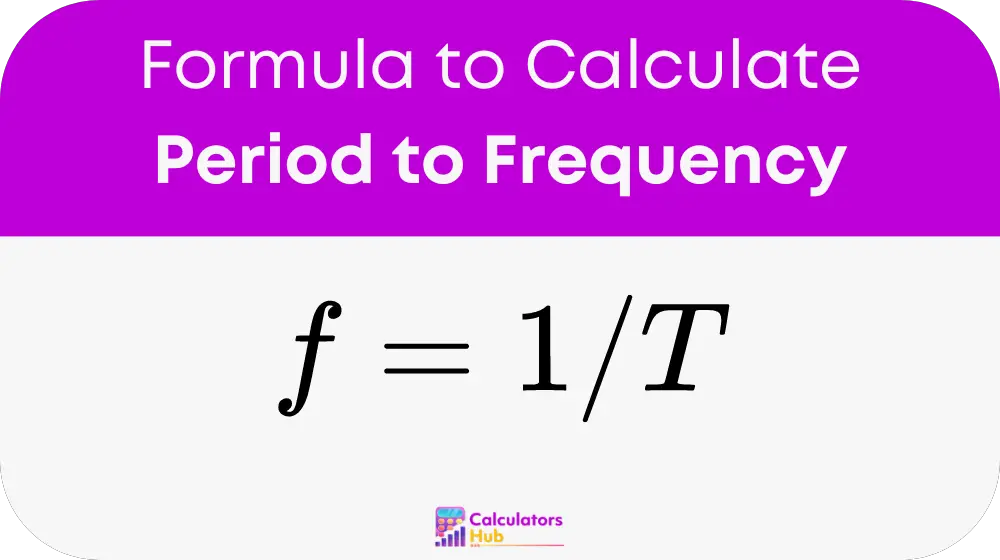The Convert Period to Frequency Calculator is a tool designed to transform the period of a wave into its frequency. This conversion is crucial for analyzing wave properties in various scientific and engineering contexts. The calculator aids in quick computations, ensuring accuracy and efficiency in projects and studies.
Formula of Convert Period to Frequency Calculator
The formula to convert period to frequency is straightforward:

Where:
- f is the frequency (in Hertz, Hz)
- T is the period (in seconds, s)
This formula is the cornerstone of understanding how wave frequencies are derived from their cyclic periods.
Table of General Terms
Here's a handy table for common period values and their corresponding frequencies, along with some other related conversions:
| Period (s) | Frequency (Hz) | Example Application |
|---|---|---|
| 1 | 1 | Low-frequency sound waves |
| 0.5 | 2 | Musical tones |
| 0.1 | 10 | Radio frequencies |
This table serves as a quick reference to understand how varying periods relate to their frequencies in practical applications.
Example of Convert Period to Frequency Calculator
To make the concepts more clear let us look at an example.
Let's consider a practical example:
- If the period of a wave is 0.25 seconds, using the formula, the frequency would be:
f = 1 / 0.25 = 4 Hz
This frequency might represent a very low pitch sound detectable by human ears.
Most Common FAQs
Frequency refers to the number of cycles a wave completes in one second, measured in Hertz (Hz).
To convert period to frequency, use the formula f = 1 / T, where T is the period in seconds.
This conversion is vital for accurately describing wave behaviors in physics, engineering, and other sciences, facilitating precise measurements and analyses.